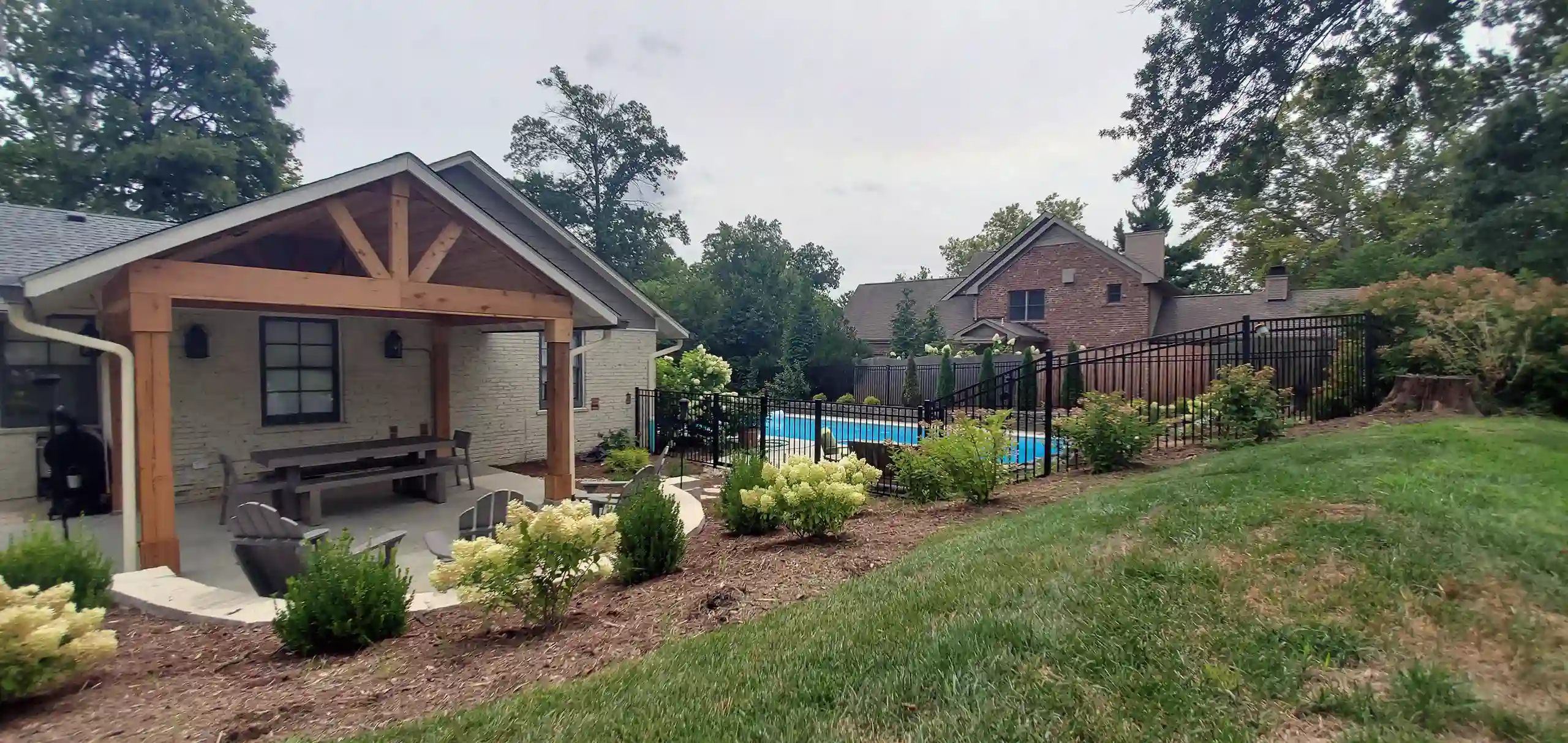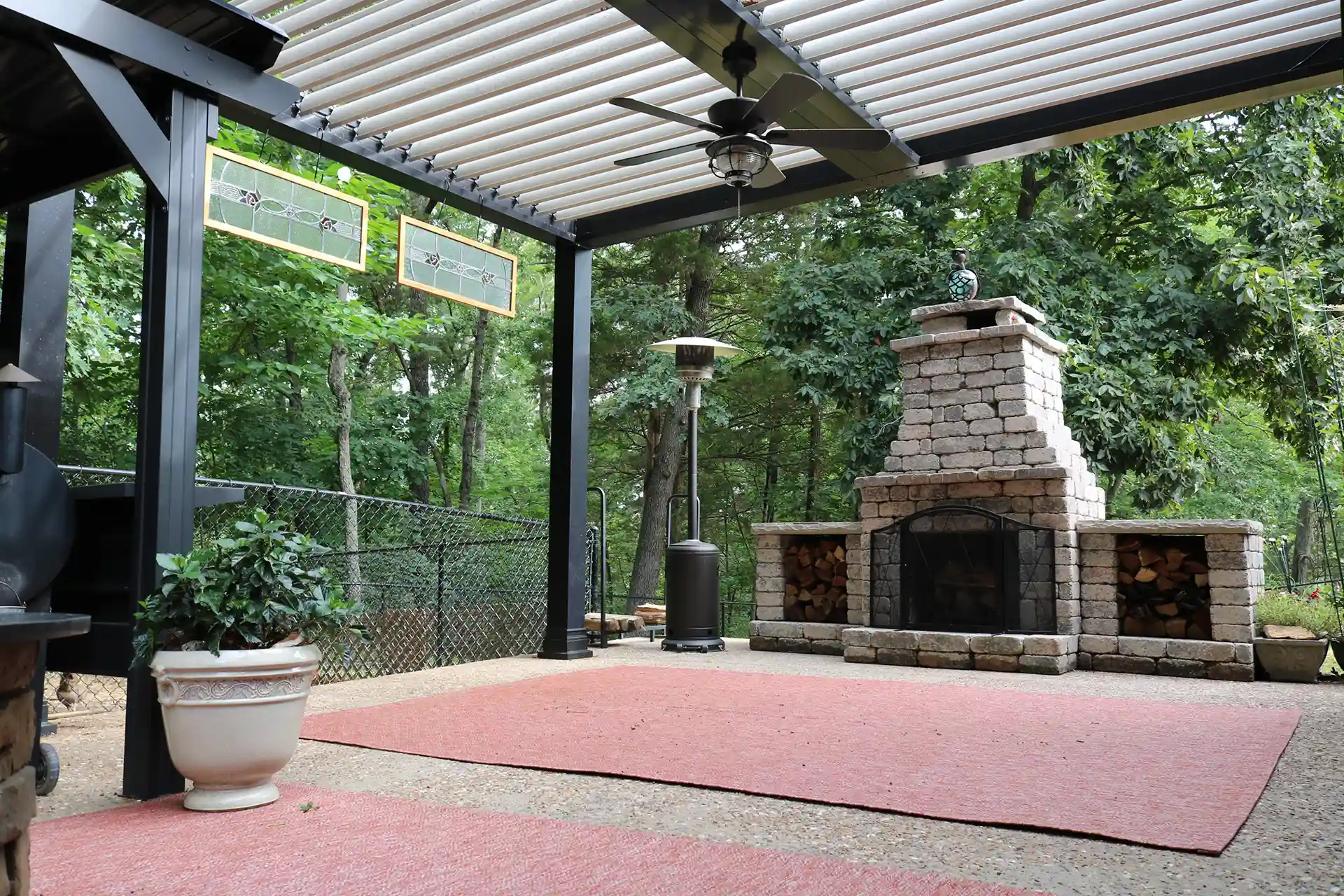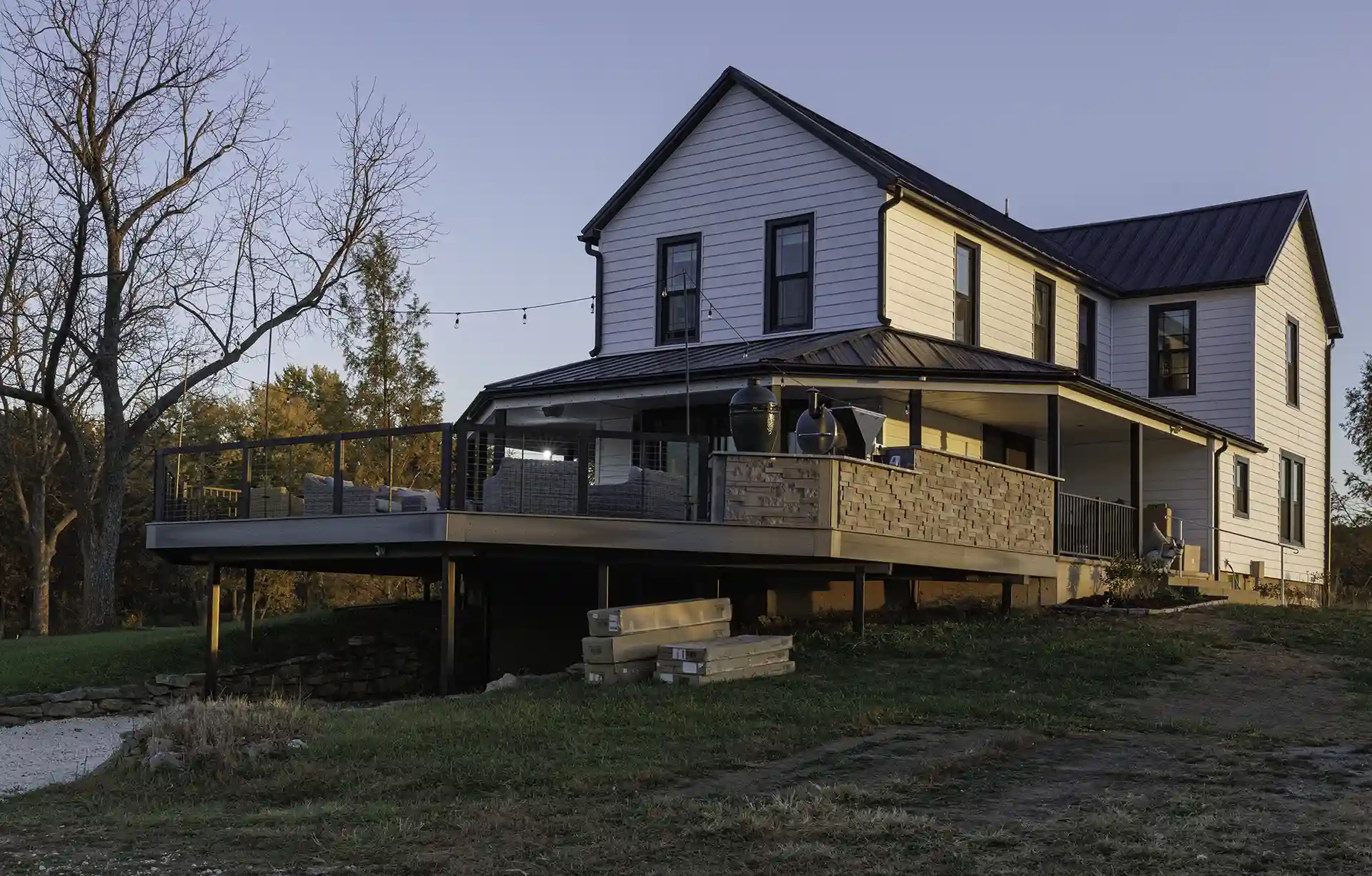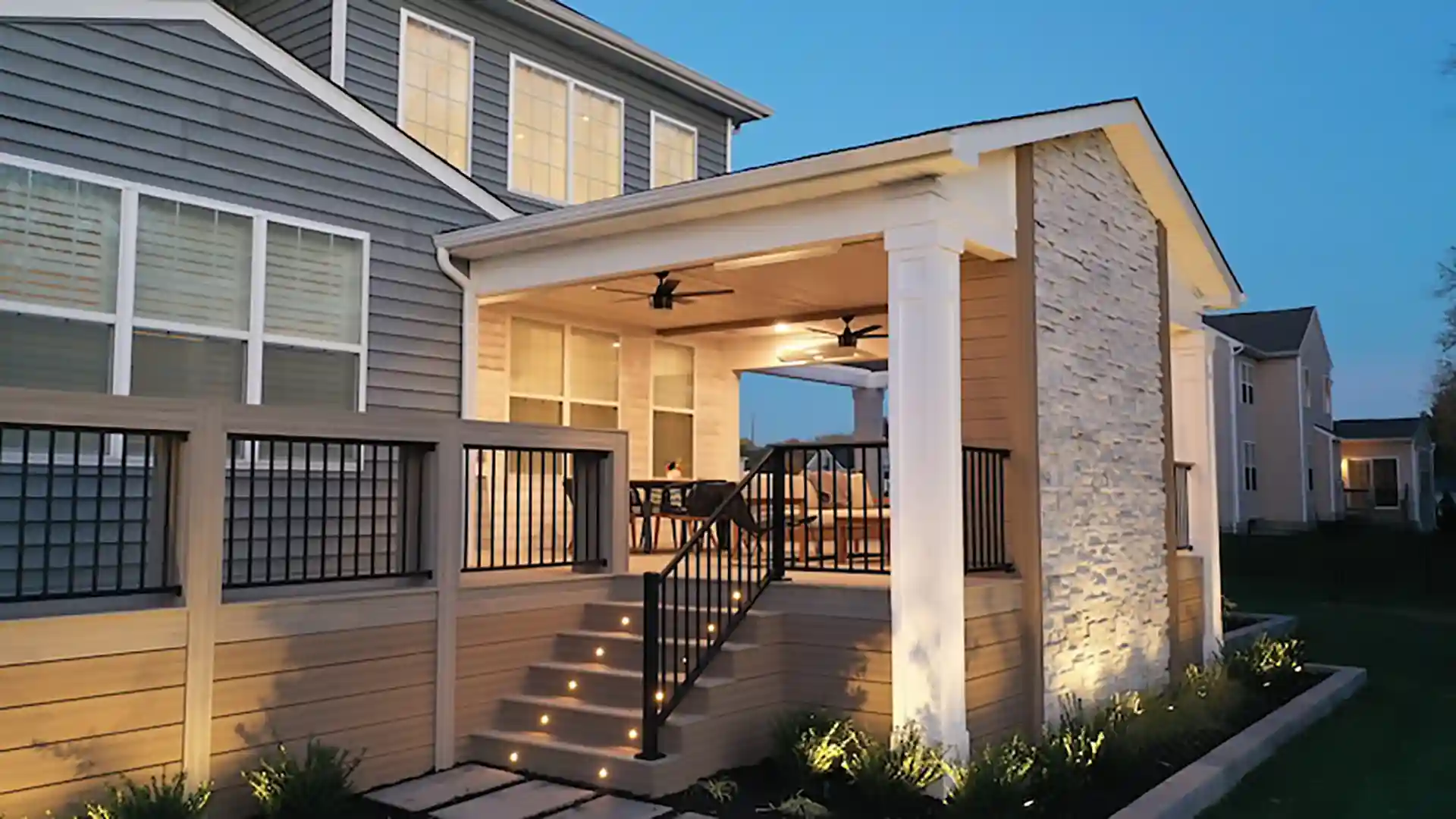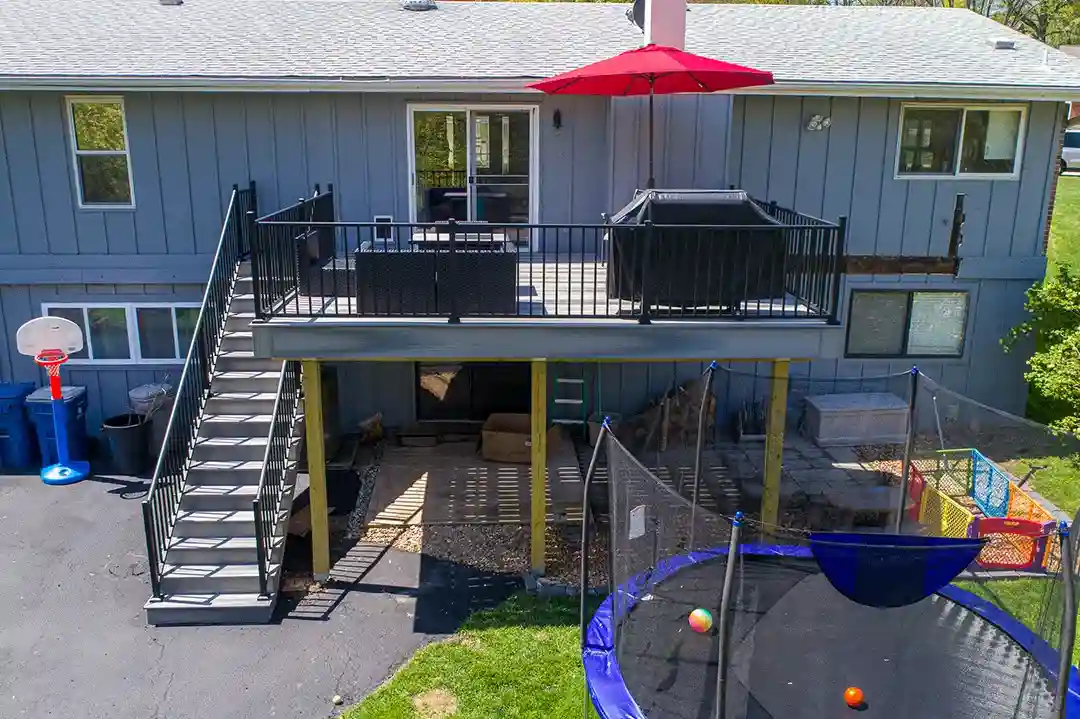
Building a deck is an exciting project, but choosing the right time to construct it can be just as important as selecting the materials. When it comes to deck construction in Clarkson Valley, understanding the impact of seasonal weather, contractor availability, and material costs will help you make an informed decision on the best time to build a deck.
Whether you’re envisioning a multi-level deck, a composite deck, or an outdoor kitchen, each season presents its own set of benefits and challenges. In this blog, we’ll compare the pros and cons of spring deck building vs. summer deck construction, and provide insights into how to plan your deck installation schedule for the best outcome.
The Key Factors to Consider: Timing Your Deck Construction
Before diving into the specifics of spring vs. summer deck construction, it’s important to consider the following factors that influence project cost, timelines, and material availability:
- Budget and Material Costs: The demand for materials and contractors can greatly affect your costs.
- Weather Conditions: Unpredictable weather in the spring or the consistent heat in the summer can impact the overall timeline.
- Contractor Availability: Depending on the season, scheduling your contractor can either be a breeze or a waiting game.
- Project Complexity: For more complex projects, like adding an outdoor kitchen or multi-level decks, the season can influence the time it takes to complete.
Spring Deck Construction: A Smart Choice for Early Start
Spring offers some of the best opportunities to build your deck, especially if you’re planning to use it for summer gatherings. However, it comes with its own set of challenges that need to be considered.
Pros of Spring Deck Construction
- Lower Costs: Spring is traditionally a slower period for deck builders. With fewer people scheduling projects during this time, there’s a greater likelihood of receiving lower labor rates and discounted materials. You could potentially save 5-10% by starting your deck project in the spring.
- Better Availability: Deck builders are less likely to be booked solid during the spring, which means you’ll have more flexibility in scheduling your project and getting started sooner. Since contractors are typically less busy, they can often give your project focused attention and faster timelines.
- No Extreme Weather: Spring brings mild temperatures, making it a comfortable time for both contractors and materials. The ground may also be more stable than in the winter, allowing for easier foundation installation.
Cons of Spring Deck Construction
- Unpredictable Rain: Springtime in Clarkson Valley can be full of unexpected rain showers. While composite decking can withstand moisture better than wood, persistent wet weather can still cause construction delays. Rain delays can accumulate to several days or even weeks, depending on the project’s scope.
- Ground Thawing: If the winter was freezing, the ground could still be soft from melting snow. For deck foundations, this may result in delays in footing work, as the soil requires time to settle before construction can commence.
Summer Deck Construction: Consistency and Speed
Summer is the most popular season for deck construction, thanks to longer days and more predictable weather. However, while summer construction might seem like an obvious choice, there are some things you should be aware of before choosing to build during the warmer months.
Pros of Summer Deck Construction
- Predictable Weather: The biggest benefit of summer construction is the consistent, warm weather. Unlike the spring, which can have sudden storms, summer typically offers dry, sunny conditions. This means fewer weather delays and a faster, more predictable timeline for completing your deck.
- Longer Workdays: Summer days are longer, allowing contractors to work extended hours. For larger projects, such as multi-level decks or outdoor kitchens, this can speed up the timeline by allowing more time to work during the day.
- Faster Completion: Due to stable weather and longer daylight hours, summer projects can often be completed more quickly than spring projects. With no weather delays, contractors can finish the job within 4-6 weeks, especially if you are working with a team that has experience with quick turnarounds.
Cons of Summer Deck Construction
- Higher Costs: Summer is the peak season for deck construction. With high demand comes higher costs, from labor rates to materials. Expect to pay 10-20% more for your deck, as prices are driven up due to increased demand.
- Longer Wait Times for Contractors: If you have a specific contractor in mind, expect to wait longer for availability. The summer months are busy, and many contractors may be booked months in advance. Scheduling a contractor can sometimes take weeks or even months, which may delay your project if you don’t plan.
In Summary: Deck Construction Timeline Comparison: Spring vs. Summer
| Factor | Spring Construction | Summer Construction |
| Labor Costs | 5-10% lower due to off-peak demand. | 10-20% higher due to peak season demand. |
| Material Costs | 5-10% lower as suppliers reduce prices to encourage sales. | 10-15% higher due to increased demand and material shortages. |
| Project Duration | 6-8 weeks on average (can be delayed by weather). | 4-6 weeks (fast-paced with no weather delays). |
| Contractor Availability | Easier to schedule, with more flexibility and faster start times. | Contractors are typically fully booked 2-3 months in advance. |
| Weather Impact | Rain delays can extend the project timeline. | Consistent sunny weather provides fewer interruptions. |
| Ground Stability | Ground thawing may cause delays, as the soil can be soft. | Stable ground for faster foundation and footing installation. |
| Material Availability | Better availability, especially for less popular materials. | Limited availability of high-demand materials like composite. |
In Summary: Budget Considerations: How Seasonal Demand Affects Deck Construction Costs
| Factor | Spring Construction | Summer Construction |
| Labor Costs | Lower due to reduced demand for contractors. | Higher due to peak season demand. |
| Material Costs | 5-10% cheaper due to lower demand. | 10-20% more expensive due to higher demand. |
| Cost-Saving Opportunities | More discounts available for materials. | Limited discounts due to high demand. |
| Supply Chain Impact | Stable availability of non-popular materials. | Potential shortages of high-demand materials. |
| Time-Saving Potential | Shorter wait times for materials and contractors. | Longer wait times for materials and contractors. |
The Don’ts of Deck Construction: What to Avoid and Their Consequences
Building a deck involves multiple decisions, from selecting materials to coordinating schedules. If done improperly, certain oversights can compromise the durability, functionality, and safety of your deck. Here’s a breakdown of common mistakes in deck construction, along with the technical consequences and how to avoid them for a successful build.
1. Don’t Skip Proper Site Evaluation and Soil Testing
Failing to evaluate the soil or topography can result in foundation instability, deck shifting, and uneven flooring.
Consequences of Skipping Site Evaluation:
- Foundation failure: Without proper site evaluation, you risk foundation settling or movement.
- Improper footing depth: Shallow footings will cause the deck to sink or tilt.
- Increased cost: Correcting foundation issues later on will be more expensive than addressing them upfront.
Solution: Always have a professional contractor conduct a soil test to ensure the ground can support the deck’s weight and identify any issues, such as poor drainage or soft soil.
2. Don’t Choose Cheap, Low-Quality Materials
Choosing cheap materials can lead to warping, cracking, and premature deterioration.
Consequences of Using Low-Quality Materials:
- Warping and cracking: Low-grade materials will fail under fluctuating temperatures.
- Increased long-term costs: Cheap materials need constant repairs and replacements.
- Reduced load-bearing capacity: Poor materials can’t handle the weight of furniture, people, or environmental stress.
Solution: Invest in high-quality materials like composite decking, steel framing, and pressure-treated wood.
3. Don’t Overlook Deck Foundation and Framing Integrity
Weak framing can lead to deck sagging, shifting, and collapse.
Consequences of Weak Framing:
- Deck sagging or shifting: Weak foundation materials cause the deck to settle or crack.
- Uneven deck surfaces: Poor framing leads to uneven surfaces and railing heights.
- Early maintenance costs: Poor framing creates gaps, allowing moisture and rust to damage the deck.
Solution: Use steel framing or deep concrete footings for a solid foundation.
4. Don’t Skip Maintenance Considerations
Many homeowners forget that materials like wood decking require regular maintenance to avoid fading, mold, and decay.
Consequences of Skipping Maintenance:
- Fading and staining: Untreated materials will fade, creating an unattractive deck.
- Increased risk of mold: Wood decks will trap moisture, leading to rot.
- Safety issues: Poor maintenance leads to loose boards and rusted nails.
Solution: Use low-maintenance composite decking like Trex or TimberTech.
5. Don’t Rush the Design Process
A rushed design can lead to inefficient layout, safety risks, and underutilized space.
Consequences of Rushing the Design:
- Poor traffic flow: The layout might make the space hard to navigate.
- Safety risks: Poorly designed railings or decks can lead to accidents.
- Underutilized space: You may not get the most out of your outdoor area.
Solution: Take time to work with a deck designer to create a functional and safe layout.
Start Your Deck Project Today with Solid Ground
Spring and summer offer unique benefits for deck construction in Clarkson Valley. By carefully considering budget, material availability, and weather conditions, you can make an informed choice that sets you up for long-term success.
Whether you’re building a custom deck, a multi-level deck, or installing an outdoor kitchen, Solid Ground is here to help you every step of the way. Contact us today for a free estimate and let us guide you through the process of designing the perfect deck that suits both your lifestyle and the Clarkson Valley climate.
